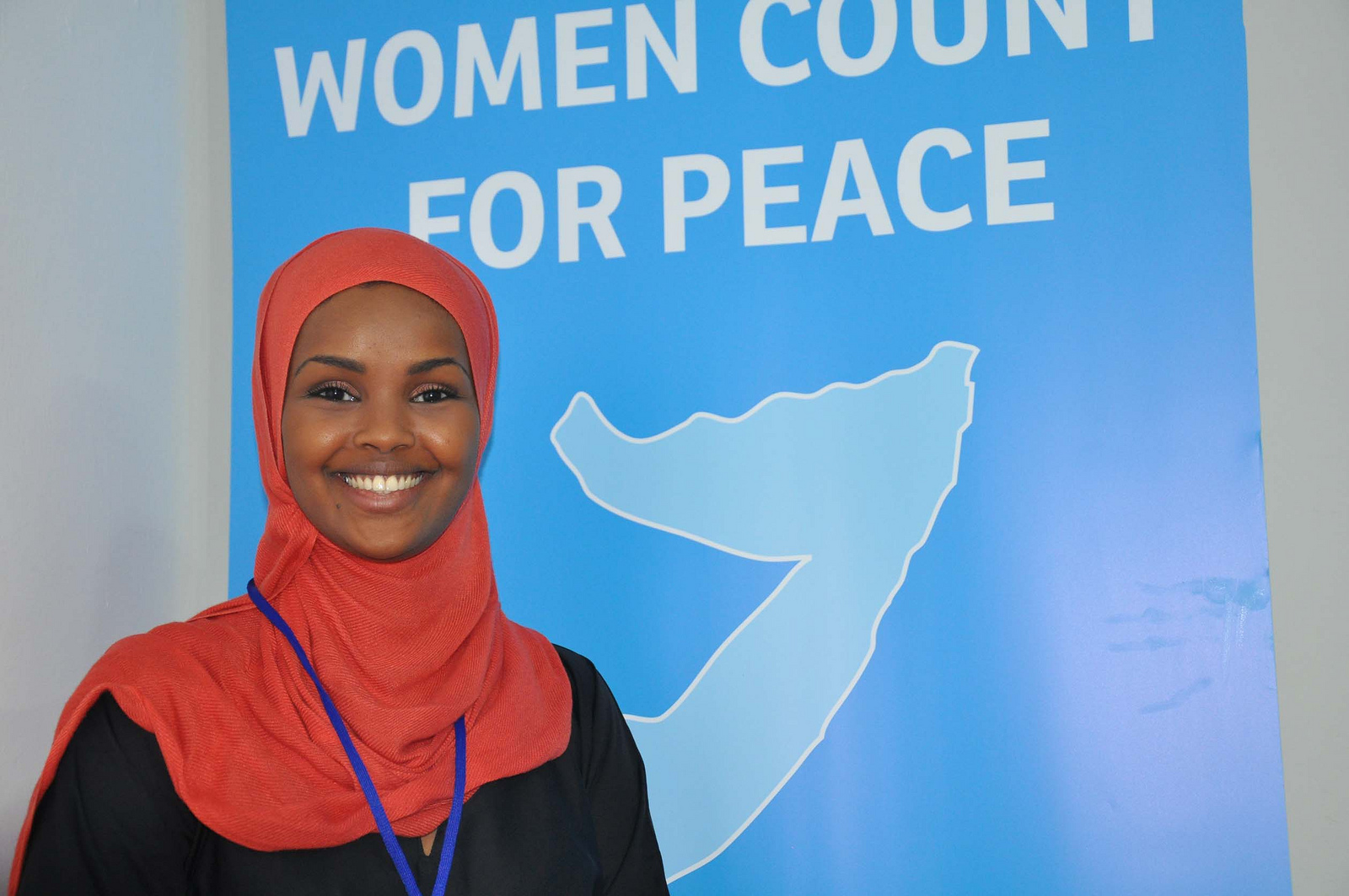
Ilwad Elman: Somali woman human rights defender
Ilwad Elman, a courageous woman human rights defender in Somalia, combats gender-based violence and champions women's rights amidst formidable challenges and widespread opposition.
“Traditional practices that go hand in hand with gender-based violence is an issue that women human rights defenders have met with unified opposition”
Ilwad Elman is a Woman Human Rights Defender working with the Elman Peace and Human Rights Center in Somalia. Born in Somalia to two pioneering peace and human rights activists, Elman fled to Canada when civil war broke out in Somalia in 1991. Her father, Elman Ali Ahmed, was a pioneering human rights activist who, to this day, is referred to as the Somali father of peace. After her father’s assassination, Elman returned to Somalia in 2010 to continue the work her parents began at the human rights organization they founded, the Elman Peace and Human Rights Center.
The Elman Peace and Human Rights Center is an NGO working on human rights, protection, peacebuilding, gender justice and education with a geographic coverage throughout South and Central Somalia. The Center supports human rights defenders who operate against all odds for the betterment of the Somali people in a country fraught with risks and constant uncertainty. One of the most important projects spearheaded by the Center is Sister Somalia, the first rape crisis center in Somalia, which provides critical life saving emergency care to survivors as well as educates and empowers women to be in control of their own lives.
“Women human rights defenders in Somalia are reprised against, threatened, unlawfully arrested, privy to sexual and gender-based violence, kidnapped and even killed as a result of their work.”
According to Elman, although women human rights defenders have become a more integral force for exposing the extent of grave human rights violations in Somalia, national legislation for their protection has yet to be developed. She says Somali women human rights defenders tackle human rights issues related to sexual and gender-based violence, sexual reproductive health and rights, right to life, freedom of speech, right to education, as well as harmful traditional practices. Regrettably, intimidation and attacks for this work stem not only from the Government, but also from non-state actors such as Al-Shabaab.
Elman notes that Somalia was recently ranked the second worst place in the world to be woman and working as a woman human rights defender only adds to the insurmountable risks faced each day. She notes that most importantly, women defenders face reprisals for working with certain agencies, especially the UN.
“Over the years it has become very clear to me that a range of actors in Somali society want to sweep sexual and gender-based violence issues under the rug.”
Elman highlights that, while the federal government of Somalia, Al-Shabaab, traditional elders and the general public rarely hold common views, the issue of traditional practices that go hand in hand with gender-based violence is one that, women human rights defenders have met with unified opposition. She notes that fighting harmful traditional practices that are deeply embedded in the culture is a great challenge as it requires community participation in reviewing social norms and then challenging those norms when they are identified as destructive.
“The UN is not doing enough to protect human rights defenders who engage with its human rights mechanisms.”
Elman points out that women defenders in Somalia engage with the UN system on a regular basis; however, the issue of reprisals for this cooperation remains a serious problem. She believes the only way to tackle this issue is by establishing a system of contracted UN personnel to monitor this issue specifically on the ground that can extend immediate support as well as report back to an established post at UN headquarters.
“Human rights, now more than ever, are very much on the political agenda in Somalia. However moving beyond the proverbial international commitments and declarations has not yet been realized.”
According to Elman, implementation of the first national road map for human rights developed by the federal government, the various international conventions recently ratified by Somalia, and the commitments regarding human rights made with multiple international partners have not born any fruit. She says that as a result, the environment for women human rights defenders in Somalia is not any more progressive or enabling as of yet.
Elman recalls that with the world focused on Somalia for the first time in over two decades, the State is taking steps to incorporate human rights into its legislation; however it is crucial for international partners to now support the government in domesticating, implementing and promoting human rights.
